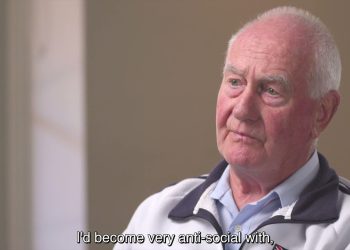Years ago, Sam Antar, relative to the founder of the erstwhile “Crazy Eddie” electronics store chain, Eddie Antar, instituted a legal proceeding against the prominent gaming and betting enterprise, BetMGM, the Borgata, alongside other defendants. In his legal filing, he asserted that BetMGM provided him gratuities in spite of being conscious of his compulsive gambling problem.
Antar contended that his financial losses were nearly $30 million within the timeframe of May 2019 and January 2020. The claimant affirmed that despite his addiction to gambling, the platform baited him with attractive incentives, magnifying the predicament and causing him to lose more than he could spare. Through his legal complaint, Antar argued that BetMGM violated the New Jersey Consumer Fraud Act (CFA) as it tempted him with gratuities, despite knowing his struggles with compulsive gambling.
At the end of the previous month, Antar’s litigation against BetMGM was discharged. District Judge Madeline Cox Arleo was responsible for the judgment, elaborating in her ruling that the Casino Control Act (CCA) overrules the CFA. According to her decision, regardless of the fact that gambling addiction is classified as a substance addiction disorder in the DSM 5, currently, there are no legal consequences demanding casinos to refrain from coaxing people who display a tendency towards problem gambling.
Despite the termination of his lawsuit, Antar verified his plan to pursue an appeal, as justified by a notice of appeal issued on February 26, 2024. In essence, the notice of appeal requests the US Court of Appeals for the Third Circuit to resurrect his case against BetMGM and the Borgata, besides other defendants.
The Lawsuit Sparks Debate Over Gambling Operators’ Responsibility of Care
The freshly initiated appeal is hardly unexpected, given that Antar implied this possibility after his lawsuit was discharged in late January. However, his lawsuit signifies more than just a legal challenge as it brings into question the obligation of care by gambling companies in New Jersey.
Keith Whyte, the executive director of the National Council on Problem Gambling, when interviewed by US Bets, expressed concern over the escalating need for a responsibility of care from gambling operators in New Jersey. He explained that there should certainly be a compulsory duty of care, and not having one could pose a considerable risk both for the community and the industry.
Whyte suggested that the best strategy for the gaming sector would be to unite in its efforts to enforce a duty of care. He posited that the legislation for a duty of care seems inevitable, but if the industry fails to lead these initiatives, they may encounter adverse effects.







